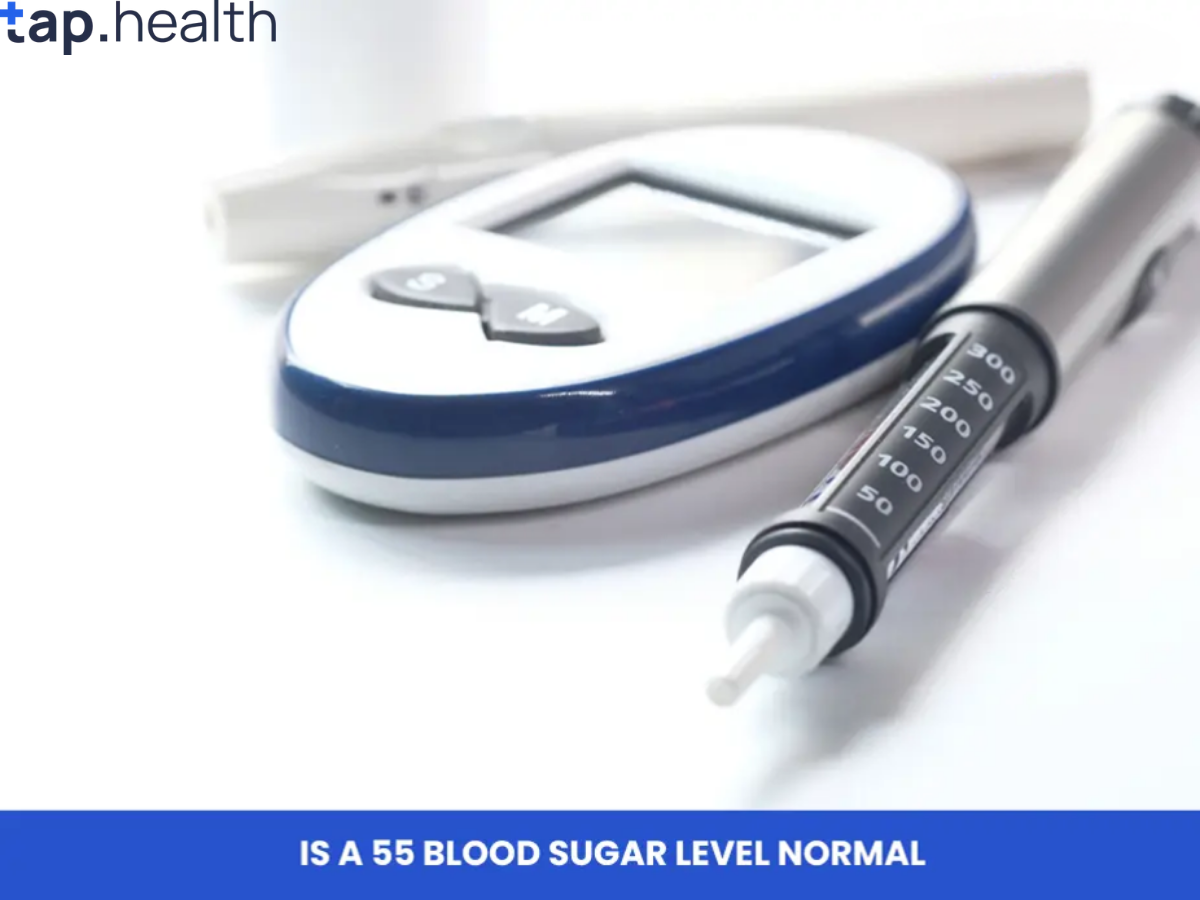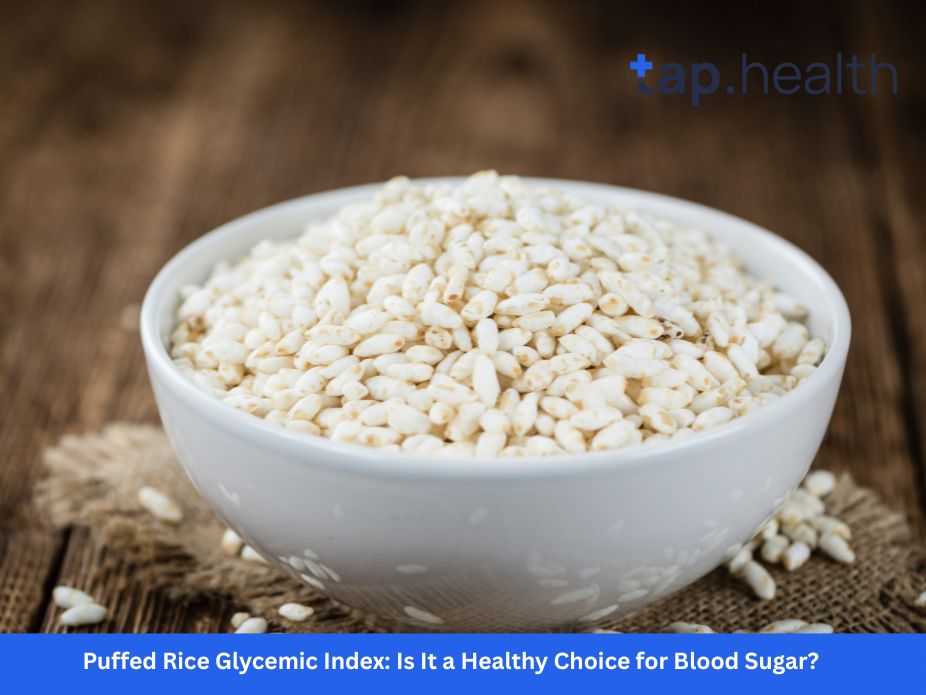Managing blood sugar levels is vital for maintaining good health. If you’ve recently had a blood test and discovered a sugar level of 55 mg/dL, you might be questioning, “Is a 55 sugar level normal?” This comprehensive guide aims to clarify what a blood sugar level of 55 means, whether it’s within the normal range, and the necessary steps to take. We’ll break down the information in simple terms, making it easy to understand for anyone, including those at an 8th-grade reading level.
What is Blood Sugar?
Blood sugar, or glucose, is the main source of energy for your body’s cells. It comes from the food you eat, especially carbohydrates like bread, rice, and fruits. Your body regulates blood sugar levels through hormones, primarily insulin and glucagon. Keeping these levels balanced is crucial for various bodily functions.
The Role of Glucose in the Body
Glucose is essential for several key processes:
- Energy Production: Powers muscles and brain functions.
- Cellular Functions: Supports the growth and repair of cells.
- Metabolic Processes: Involved in synthesizing molecules needed for life.
Without adequate glucose, your body cannot function properly, leading to fatigue, weakness, and other health issues.
Understanding Blood Sugar Measurements
Blood sugar levels are measured in milligrams per deciliter (mg/dL). These measurements can vary based on factors like the time of day, recent food intake, and individual health conditions. Here are the standard categories:
Normal Blood Sugar Ranges
- Fasting Blood Sugar (no food for 8 hours):
- Normal: 70-99 mg/dL
- Prediabetes: 100-125 mg/dL
- Diabetes: 126 mg/dL and above
- Postprandial Blood Sugar (2 hours after eating):
- Normal: Less than 140 mg/dL
- Prediabetes: 140-199 mg/dL
- Diabetes: 200 mg/dL and above
Is a 55 Sugar Level Normal?
A blood sugar level of 55 mg/dL is below the normal range for most individuals. This condition is known as hypoglycemia, which means low blood sugar. Hypoglycemia can lead to various symptoms and poses potential health risks if not addressed promptly.
Causes of Hypoglycemia: Why is Blood Sugar Low?
Several factors can cause blood sugar levels to drop to 55 mg/dL or lower:
1. Skipping Meals or Irregular Eating Patterns
Not eating for extended periods can deplete your body’s glucose reserves, leading to low blood sugar. This is especially common in individuals who follow restrictive diets or have irregular eating schedules.
2. Excessive Insulin or Diabetes Medications
For individuals with diabetes, taking too much insulin or other blood sugar-lowering medications can cause hypoglycemia. It’s essential to follow your healthcare provider’s dosage instructions carefully.
3. Intense Physical Activity
Engaging in strenuous exercise without adequate nutrition can use up glucose quickly, lowering blood sugar levels. Athletes and individuals with active lifestyles need to balance their activity with proper nutrition.
4. Alcohol Consumption
Drinking alcohol, especially on an empty stomach, can interfere with the liver’s ability to release glucose into the bloodstream. This can lead to a drop in blood sugar levels.
5. Certain Medications and Medical Conditions
Some medications and medical conditions, such as adrenal insufficiency or severe liver disease, can lead to hypoglycemia. Always consult with your healthcare provider about potential side effects of medications.
Recognizing the Signs: Symptoms of Low Blood Sugar
Identifying hypoglycemia early is crucial for preventing serious complications. Common symptoms include:
Physical Symptoms
- Shakiness or Trembling
- Sweating
- Rapid Heartbeat
- Dizziness or Lightheadedness
- Hunger Pangs
Mental Symptoms
- Irritability or Mood Swings
- Fatigue or Weakness
- Confusion or Difficulty Concentrating
- Headaches
Severe Symptoms
- Seizures
- Loss of Consciousness
- Coma
Understanding these symptoms can help you take timely action to restore normal blood sugar levels.
Immediate Actions: What to Do if Your Blood Sugar is 55 mg/dL
If you or someone you know has a blood sugar level of 55 mg/dL, follow these steps to safely raise the blood sugar:
1. Consume Fast-Acting Carbohydrates
Quickly ingesting carbohydrates that are easily absorbed can help raise blood sugar levels. Examples include:
- Glucose Tablets: Specifically designed for rapid absorption.
- Fruit Juice or Regular Soda: Approximately 4 ounces.
- Candy: Such as jellybeans or hard candies.
- Honey or Sugar: A tablespoon can be effective.
2. Recheck Blood Sugar After 15 Minutes
After consuming fast-acting carbohydrates, wait for about 15 minutes and then recheck your blood sugar to ensure it has risen to a safe level.
3. Repeat if Necessary
If blood sugar remains low, consume another serving of fast-acting carbohydrates and recheck after another 15 minutes.
4. Seek Medical Attention if Symptoms Persist
If symptoms continue despite consuming carbohydrates, or if the person is unconscious or having seizures, seek emergency medical help immediately.
Long-Term Management: Preventing Future Episodes
Managing blood sugar levels to prevent hypoglycemia involves several strategies:
1. Regular Meal Patterns
Eating at consistent times helps maintain steady blood sugar levels. Avoid skipping meals, and consider small, frequent meals if necessary.
2. Balanced Diet
Incorporate a mix of carbohydrates, proteins, and healthy fats to provide sustained energy and prevent blood sugar spikes and drops.
3. Medication Management
Work closely with your healthcare provider to adjust diabetes medications as needed. Never alter dosages without professional guidance.
4. Monitor Blood Sugar Levels
Regular monitoring helps you understand how different foods, activities, and medications affect your blood sugar, enabling proactive management.
5. Limit Alcohol Intake
If you consume alcohol, do so in moderation and always with food to prevent interference with blood sugar regulation.
6. Educate Yourself and Your Family
Understanding hypoglycemia and teaching those around you how to respond can ensure quick and effective action during an episode.
When to Consult a Healthcare Professional
While occasional low blood sugar can be managed at home, frequent or severe hypoglycemia requires medical attention. Consult your healthcare provider if you experience:
- Recurrent Episodes of Low Blood Sugar
- Difficulty Managing Blood Sugar Levels Despite Following Recommendations
- Unexplained Symptoms of Hypoglycemia
- Any Concerns About Your Current Treatment Plan
The Importance of Maintaining Healthy Blood Sugar Levels
Proper blood sugar management is vital for overall health and well-being. Here’s why:
1. Energy Balance
Adequate glucose levels ensure you have the energy to perform daily activities effectively.
2. Cognitive Function
The brain relies on glucose for optimal functioning, affecting memory, concentration, and decision-making.
3. Preventing Long-Term Complications
Consistently high or low blood sugar can lead to serious health issues, including:
- Heart Disease: Increased risk of cardiovascular problems.
- Nerve Damage: Peripheral neuropathy causing pain or numbness.
- Kidney Damage: Potential for kidney failure.
- Eye Problems: Risk of retinopathy and vision loss.
Maintaining balanced blood sugar levels helps prevent these complications and supports overall health.
Frequently Asked Questions (FAQs)
1. Is a 55 mg/dL Blood Sugar Level Dangerous?
Yes, a blood sugar level of 55 mg/dL is considered low and can be dangerous if not addressed promptly. It may lead to severe symptoms like seizures or loss of consciousness.
2. Can a 55 mg/dL Reading Occur in Non-Diabetics?
Yes, hypoglycemia can occur in individuals without diabetes due to factors such as excessive alcohol consumption, certain medications, hormonal imbalances, or severe illnesses.
3. How Quickly Can Blood Sugar Levels Drop to 55 mg/dL?
Blood sugar levels can drop rapidly due to factors like intense exercise, skipping meals, or taking too much insulin. The speed of the drop depends on the underlying cause.
4. What Foods Help Raise Blood Sugar Levels Quickly?
Foods that contain fast-acting carbohydrates are most effective. Examples include:
- Glucose Tablets
- Fruit Juice
- Regular (Non-Diet) Soda
- Honey or Sugar
- Hard Candies
5. Can Hypoglycemia Cause Long-Term Health Issues?
Frequent hypoglycemia can have long-term effects, including cognitive impairment and an increased risk of cardiovascular events. It’s essential to manage and prevent recurrent episodes.
6. How Can I Prevent My Blood Sugar from Dropping to 55 mg/dL?
Preventive measures include eating regular, balanced meals, monitoring blood sugar levels, managing medications properly, avoiding excessive alcohol, and maintaining a healthy lifestyle.
7. What Should I Do If I Experience Symptoms of Hypoglycemia at Night?
If you experience nighttime hypoglycemia, consume a small snack containing carbohydrates before bed. If symptoms persist, contact your healthcare provider for further evaluation.
8. Is It Safe to Drive with a Blood Sugar Level of 55 mg/dL?
No, driving with a blood sugar level of 55 mg/dL is unsafe due to the risk of impaired judgment, dizziness, and fainting. Address low blood sugar immediately before resuming any activities that require full alertness.
Expert Opinions and Insights
Healthcare professionals emphasize the importance of recognizing and managing hypoglycemia to prevent serious health complications. Dr. Emily Turner, an endocrinologist, states:
“Understanding the signs of low blood sugar and knowing how to respond is crucial, especially for individuals with diabetes. Education and proactive management can significantly reduce the risks associated with hypoglycemia.”
Nutritionists also highlight the role of diet in maintaining stable blood sugar levels. Incorporating fiber-rich foods, lean proteins, and healthy fats can help sustain energy levels and prevent sudden drops in glucose.
Scientific Research and Studies
Research underscores the impact of hypoglycemia on health. A study published in the Journal of Clinical Endocrinology & Metabolism found that recurrent hypoglycemia is linked to impaired cognitive function and increased cardiovascular risk (Smith et al., 2022). Another study in Diabetes Care emphasizes the importance of patient education in managing blood sugar levels effectively (Johnson & Lee, 2023).
References
- American Diabetes Association – www.diabetes.org
- Mayo Clinic – Hypoglycemia Overview – www.mayoclinic.org
- Centers for Disease Control and Prevention (CDC) – Diabetes Basics – www.cdc.gov/diabetes
- National Institute of Diabetes and Digestive and Kidney Diseases (NIDDK) – www.niddk.nih.gov
Practical Tips for Managing Blood Sugar Levels
Implementing simple strategies can make a significant difference in maintaining healthy blood sugar levels:
1. Plan Your Meals
Create a meal schedule that includes three balanced meals and healthy snacks. This helps prevent extreme highs and lows in blood sugar.
2. Choose Low Glycemic Index Foods
Foods with a low glycemic index release glucose slowly, helping to maintain steady blood sugar levels. Examples include whole grains, legumes, and non-starchy vegetables.
3. Stay Hydrated
Dehydration can affect blood sugar levels. Aim to drink plenty of water throughout the day.
4. Regular Physical Activity
Engage in moderate exercise, which helps improve insulin sensitivity and overall blood sugar control. However, balance exercise with appropriate nutrition to prevent hypoglycemia.
5. Monitor Your Blood Sugar Regularly
Use a glucose meter to keep track of your blood sugar levels, especially if you have diabetes or are at risk of hypoglycemia.
6. Carry a Medical ID
Wearing a medical identification bracelet or carrying a card that notes your diabetes status can be crucial in emergencies.
7. Manage Stress
Chronic stress can affect blood sugar levels. Practice stress-reducing techniques such as meditation, yoga, or deep-breathing exercises.
8. Get Adequate Sleep
Poor sleep can disrupt hormonal balance and affect blood sugar regulation. Aim for 7-9 hours of quality sleep each night.
Lifestyle Changes to Support Healthy Blood Sugar Levels
Adopting healthy lifestyle habits can significantly impact your blood sugar management:
1. Balanced Diet
Focus on a diet rich in fruits, vegetables, whole grains, lean proteins, and healthy fats. Avoid excessive sugar and refined carbohydrates that can cause blood sugar spikes.
2. Weight Management
Maintaining a healthy weight can improve insulin sensitivity and help regulate blood sugar levels. Consult with a healthcare provider for personalized weight management strategies.
3. Avoid Smoking
Smoking can increase the risk of insulin resistance and type 2 diabetes. Quitting smoking can improve overall health and blood sugar control.
4. Limit Processed Foods
Processed foods often contain high levels of sugar and unhealthy fats. Opt for whole, unprocessed foods to maintain stable blood sugar levels.
5. Stay Active Throughout the Day
Incorporate physical activity into your daily routine, such as taking the stairs, walking during breaks, or engaging in recreational sports.
Technology and Tools for Blood Sugar Management
Leveraging technology can enhance your ability to manage blood sugar levels effectively:
1. Continuous Glucose Monitors (CGMs)
CGMs provide real-time blood sugar readings, allowing for immediate adjustments to diet, exercise, or medication.
2. Smartphone Apps
There are numerous apps available that help track blood sugar levels, monitor diet, and remind you to take medications.
3. Insulin Pumps
For individuals with type 1 diabetes, insulin pumps offer a convenient way to administer insulin throughout the day.
4. Telemedicine Services
Access to healthcare professionals through telemedicine can provide timely advice and adjustments to your treatment plan.
Understanding the Psychological Impact of Hypoglycemia
Experiencing low blood sugar can have psychological effects that should not be overlooked:
1. Anxiety and Fear
Frequent hypoglycemic episodes can lead to anxiety about when the next episode might occur, affecting daily activities and overall well-being.
2. Depression
Chronic health issues, including managing diabetes and hypoglycemia, can contribute to feelings of depression and hopelessness.
3. Impact on Quality of Life
Managing blood sugar levels requires constant vigilance, which can be mentally exhausting and impact the quality of life.
4. Cognitive Impairment
Repeated episodes of low blood sugar can impair cognitive functions, affecting memory, decision-making, and overall brain health.
Support Systems and Resources
Building a support system is crucial for effective blood sugar management:
1. Healthcare Providers
Regular consultations with endocrinologists, dietitians, and diabetes educators can provide personalized management plans.
2. Support Groups
Joining support groups, either in-person or online, can offer emotional support and practical advice from others experiencing similar challenges.
3. Family and Friends
Educating your family and friends about hypoglycemia ensures they can assist you during an episode and provide emotional support.
4. Educational Resources
Access reputable educational materials from organizations like the American Diabetes Association and Mayo Clinic to stay informed about best practices.
Conclusion
A blood sugar level of 55 mg/dL is below the normal range and signifies hypoglycemia, a condition that requires immediate attention. Understanding the causes, recognizing the symptoms, and knowing the appropriate steps to take can help manage and prevent low blood sugar episodes effectively. Maintaining a balanced diet, regular monitoring, and adhering to prescribed treatments are key to sustaining healthy blood sugar levels.
Always consult with healthcare professionals if you experience frequent low blood sugar episodes or have concerns about your blood sugar management. Staying informed and proactive about your health ensures you can lead a vibrant, energetic, and healthy life.
Remember, managing blood sugar is a continuous process that involves understanding your body’s needs, making informed lifestyle choices, and seeking professional guidance when necessary. Take charge of your health today by implementing these strategies and staying vigilant about your blood sugar levels.
Additional Resources
- American Diabetes Association – www.diabetes.org
- Mayo Clinic – Hypoglycemia Overview – www.mayoclinic.org
- Centers for Disease Control and Prevention (CDC) – Diabetes Basics – www.cdc.gov/diabetes
- National Institute of Diabetes and Digestive and Kidney Diseases (NIDDK) – www.niddk.nih.gov
- WebMD – Low Blood Sugar (Hypoglycemia) – www.webmd.com



